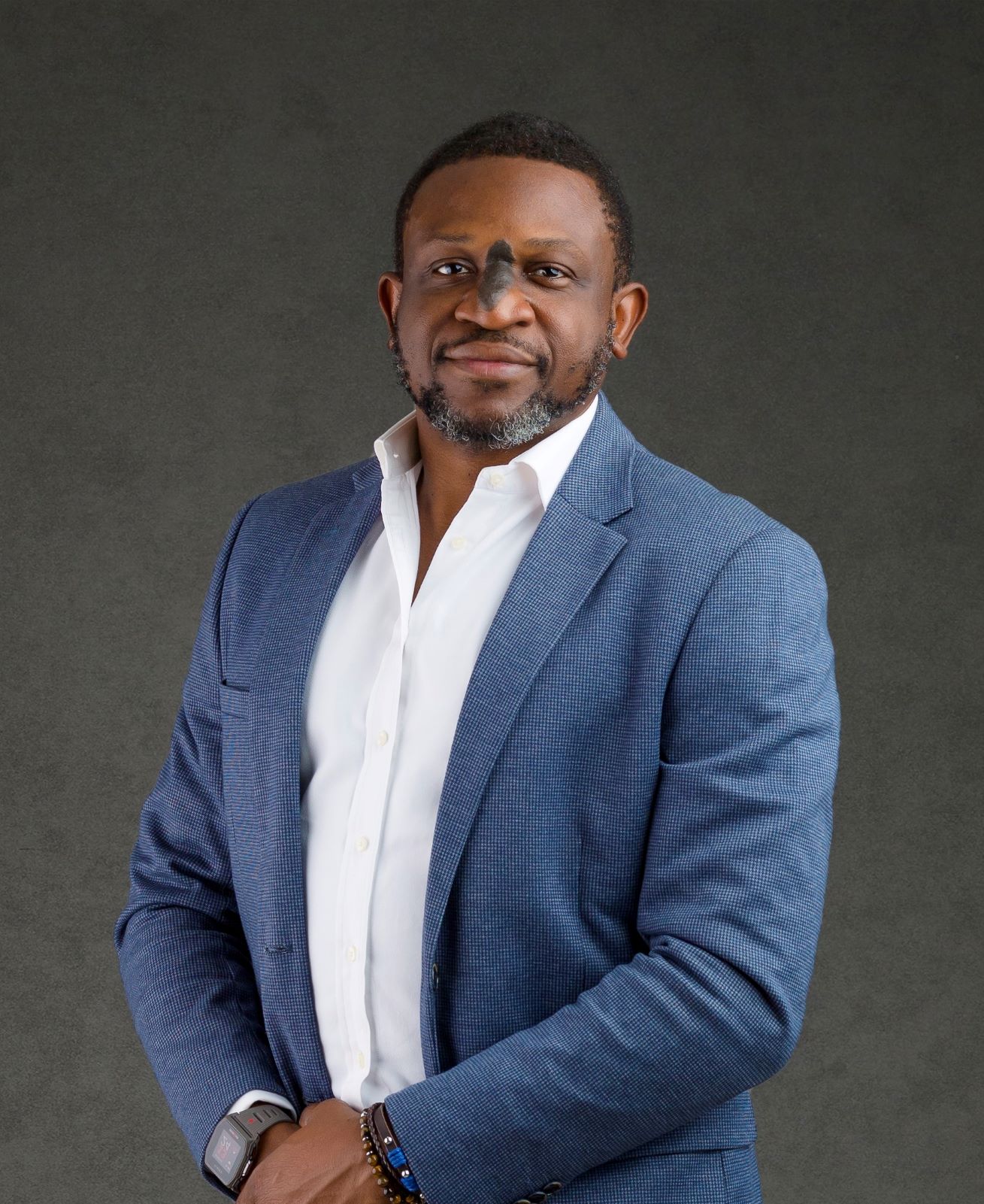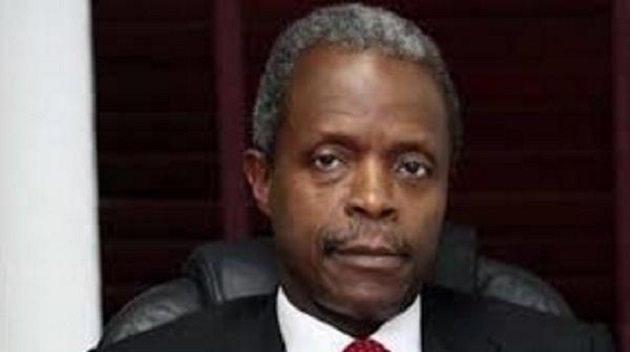Broadcasting
Nigerian Businesses can Harness Conversational Messaging to Better Engage Customers in the Digital Era

By Olatayo Ladipo-Ajai, Regional Manager at Infobip Nigeria
Businesses in Nigeria are currently faced with numerous challenges, including fast-changing global economic conditions, a new post-pandemic reality, as well as a fast-growing young population that is increasingly technology-savvy. These prevailing market conditions have ushered in challenging times, making it increasingly difficult for organisations to maintain and attract new business. Simultaneously, companies are finding that competition is increasing, which demands better and more creative differentiation than just better pricing to maintain a competitive edge.

Olatayo Ladipo Ajai
All the while, consumer behaviour is also changing drastically, with an increase in numbers of Nigerian customers choosing to engage and transact with brands online. The country’s internet penetration rate stood at 55.4% of the total population at the start of 2023, with 122.5 million internet users recorded in January 2023. Further to this, a total of 193.9 million cellular mobile connections were active in early 2023, equivalent to 87.7% of the total population.
Consequently, this prompts Nigerian businesses to explore more universal engagement routes to connect with their customers and interact via conversational messaging. To successfully engage with customers in the digital space, businesses are increasingly making the shift towards hyper-personalisation, automation, and 24/7 availability, allowing their promotional campaigns and messaging to be directly targeted at individual customers.
Deriving more value
Brands in Nigeria are thus beginning to realise that customers do not fit into boxes but are individuals who need to be analysed to derive most value from customer engagements. At the same time, it is also becoming clear that traditional SMS messaging is inadequate where achieving this level of engagement is concerned.
While SMS has played a critical role in business communication, the new realities around customer behaviour and expectations mean that traditional SMS messaging – which provides one-way engagement – has certain limitations such as gateways, DND (Do Not Disturb) and firewalls that often prevent promotional messages from reaching the target end customer, which may result to relatively low SMS open and read rates.
Conversational messaging, in the form of Rich Communication Services (RCS), can address many of these challenges, enabling businesses and brands to communicate more effectively while reaching out, attracting and converting potential customers. RCS is an evolution of SMS, which integrates features from various chat apps into one platform.
The platform allows the exchange of group chats, PDFs, video, audio and high-resolution images, as well as read receipts and real-time viewing, providing more value than traditional SMS. One of its key benefits is that RCS sits on top of the SMS platform, which means it has the same reach and is thus also native on most smartphones.
Better metrics
RCS allows for conversational engagement with customers who can be interacted with as a group or directly on a one-on-one basis, similar to apps such as WhatsApp. A clear benefit for businesses is that RCS provides deeper metrics on whether a message has been delivered, opened and clicked, delivering better analytics for businesses to gauge how successful a promotional campaign has been.
The use cases for RCS are varied and a number of banks, retailers and hospitality businesses have started using it to send promotional and transaction messages to customers. For example, banks can send payment notifications as full colour, branded, PDF documents that can serve as payment receipts. Some restaurants already use the card carousel feature to send their menus to customers to browse through the different pages and click on their desired options, without having to use the restaurant’s website or mobile app. Other use cases include the ability to send messages with a location pin from Google Maps, movie previews or QR codes that enable mobile payments by directing users to mobile payment platforms.
Conversational message provides a customer experience that not only focuses on problem-solving, but aims to build long-term relationships with customers, leading to greater customer loyalty, improved brand image and ultimately more revenue. By being conversational, businesses can deliver the best customer experience possible with advanced technology and readily meet changing consumer demands.
Broadcasting
MTN Battles Netflix, Showmax with New Streaming Platform

MTN Group, one of Africa’s leading mobile network operators, has announced a strategic partnership with UK-based video software provider Synamedia to develop a new streaming platform tailored for mobile and fixed broadband subscribers across the continent.

Through the partnership, MTN aims to enhance digital content accessibility and cater to the evolving preferences of African audiences.
“We see a unique opportunity to transform video consumption in Africa with high-quality, accessible, and relevant content,” said Selorm Adadevoh, Group Chief Commercial Officer at MTN Group.
“This partnership enables us to leverage cutting-edge technology and deep customer insights to enhance entertainment experiences and drive digital inclusion.”
With the new streaming platform, MTN enters the streaming market in competition with streaming giants like Netflix, Showmax, Multichoice, and Prime Video.
By leveraging Synamedia’s advanced cloud-based technologies, the service will deliver linear television and video-on-demand content.
It is designed to support various monetisation models, including subscriptions, ad-supported content, and free streaming channels with targeted advertising.
The streaming service will offer locally adapted content based on a curated content strategy.
Each market will benefit from content curated to reflect local cultures, languages, and viewing habits, ensuring that viewers across the continent resonate with its offerings.
“Thanks to MTN’s leadership and innovation, smartphone owners across Africa will be able to enjoy innovative linear TV and on-demand video,” Paul Segre, Synamedia, CEO, said.
“By taking advantage of the breadth of our integrated, cloud-based portfolio to quickly deploy new services at scale, MTN will be able to create a groundbreaking set of offerings for customers and viewers that will drive new revenues.”
Broadcasting
FG Begin Technical Upgrade of Government-Owned Media

Alhaji Mohammed Idris, minister of Information and National Orientation, has said that the federal government has commenced investing in cutting-edge technologies and acquiring state-of-the-art equipment for federal media organisations to ensure effective service delivery.

Alhaji Mohammed Idris, minister of Information and National Orientation,
Alhaji Idris stated this in Las Vegas during discussions with leading broadcast and information companies at the ongoing National Association of Broadcasters (NAB) Show 2025.
He said such investments have led to the upgrade and replacement of obsolete infrastructure across radio and television stations owned by the Federal Government.
Dr Suleiman Haruna, director, Public Relations and Protocol, Federal Ministry of Information and National Orientation, said the ministry was already forging partnerships with broadcast equipment manufacturers to avail local broadcasters the opportunity to benefit from emerging technologies and industry-specific training.
The minister underscored the commitment of government to collaborate with key stakeholders in the global information and broadcasting sector to strengthen Nigeria’s information dissemination framework.
Some of the executives who received the Minister and his team are Thomas King, Chairman of KINTRONIC Laboratories; Enrico Vaccari, COO of Axel Technology SRL; Gianluca Baccalini, System Engineering Solutions; and Calvin Carter, COO of Continental Electronics.
They all expressed their organisations’ readiness to collaborate with the Federal Government to enhance Nigeria’s broadcasting landscape and regulatory agencies.
Alhaji Idris is leading a delegation of senior officials, including Salihu Abdulhamid Dembos (Director-General/CEO Nigeria Television Authority), Ali Muhammed Ali (Managing Director/CEO of News Agency of Nigeria), Charles Ebuebu (Director-General/CEO of National Broadcasting Commission), Dr Lekan Fadolapo (Director-General, Advertising Regulatory Council of Nigeria), and Jibrin Baba Ndace (Director-General/CEO, Voice of Nigeria).
The NAB show, running from April 5 to 9, with the theme “The Technology, The Trend, The Future”, provides valuable insights into industry trends, covering topics such as Artificial Intelligence, cloud visualization, the creator economy, and sports production and streaming.
The Nigerian delegation aims to forge new partnerships, explore content-sharing opportunities, and enhance collaboration within the global broadcasting sector, ultimately advancing the country’s media industry.
Broadcasting
Prof Osinbajo Seeks Stronger IP Protection in Nigeria, Africa

Professor Yemi Osinbajo, SAN, GCON, former Nigerian Vice President, has called for stronger enforcement of Intellectual Property (IP) protections across Nigeria and the African continent.

Speaking during the National IP Stakeholders Forum held at the UN Building, Abuja, in commemoration of WIPO Nigeria 5th anniversary, Osinbajo highlighted the role of innovation and creativity in driving economic growth.
He emphasised the need to enhance copyright enforcement and digital rights management on platforms like YouTube, Spotify and Netflix, urging more support for artistes and filmmakers to protect their works both nationally and internationally. Osinbajo also stressed the importance of safeguarding Nigeria’s folklore and traditional expressions to unlock their commercial potential.
Addressing the challenges of IP enforcement, the former Vice President called for international cooperation, public awareness and legal reforms to combat piracy and protect Nigeria’s cultural heritage.
He also advocated for a unified African IP system to streamline patent rights and create a larger market for African innovators.
Speaking at the event, Director-General, Nigerian Copyright Commission (NCC), Dr. John Asein, reaffirmed NCC’s commitment to fostering a vibrant IP system through collaboration with WIPO Nigeria Office and other stakeholders. He lauded WIPO’s impact on Nigeria’s IP landscape.
Director, WIPO Nigeria Office, Dr. Oluwatobiloba Moody while welcoming participants expressed gratitude for the continued support from the Nigerian government and stakeholders.
The forum aims to provide a platform for ongoing discussions on IP development in Nigeria.
Some of the dignitaries at the event were the Hon. Minister of Arts, Culture, Tourism and Creative Economy, Mrs. Hannatu Musawa; Director-General, NOTAP, Barr. Dr. Obiageli Amadiobi, Representative of Minister of Foreign Affairs, Ambassador Onowu, Director-General SMEDAN and many others.

 News1 day ago
News1 day agoUS Cancels Visas for All South Sudanese Passport Holders

 News1 day ago
News1 day agoAOT Issues Bench Warrant against Sanusi, Aero Contractors MD

 News1 day ago
News1 day agoMeningitis Outbreak Kills 151 in Nigeria – NCDC

 News1 day ago
News1 day agoAfrimash Launches USSD Code to Revolutionize Poultry Farming and Combat Counterfeit Farm Produce

 News1 day ago
News1 day agoSERAP Calls on Tinubu to Reject $1.08Bn Loan, Probe Missing Funds

 News1 day ago
News1 day agoNigeria’s Debt Escalates to N144.67 Trillion, Fueled by Borrowing Surge

 General News1 day ago
General News1 day agoUniversity Don Seeks Ban of Smartphones, Social Media in Schools

 General News1 day ago
General News1 day agoAmid Rising Investor Confidence in Nigeria, Woodhall Capital Foundation Trains Captains of Industry



























